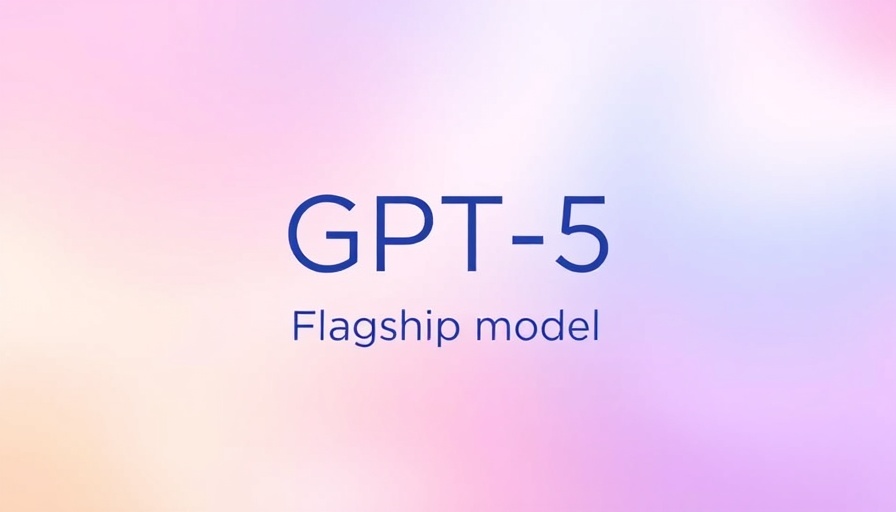
Welcome to the Era of GPT-5: A New Friendly AI
Artificial intelligence (AI) has stepped into a new realm with the introduction of GPT-5, touted as a more considerate and personable model than its predecessors. This latest iteration signifies more than just an upgrade; it's a transformation in how AI communicates with users across myriad sectors, from customer service to healthcare, promising to enhance everyday interactions.
The Transition from Rigid Responses to Human-Like Interactions
Historically, AI technologies have evolved remarkably since their early days of fixed, rule-based systems. Models like GPT-3 and GPT-4 represented significant advancements, yet they still struggled with nuanced interactions. GPT-5 emerges as a remedy, aiming to promote positive, friendly dialogues with users. This shift isn’t merely about improving response accuracy; it’s about rebuilding trust and rapport—elements crucial for deepening user engagement.
Why Friendliness Matters in AI Interactions
The increasing demand for positive and friendly interactions in AI reflects a deeper societal need for compassion and understanding, especially in sensitive settings like healthcare and customer support. As AI systems like GPT-5 adopt warmer tones, they have the potential to transform user experience significantly. This 'friendliness' may enhance user trust, leading to more effective communication, ultimately fostering better outcomes in professional and personal settings.
The Real-World Impact of GPT-5: A Glimpse into Various Industries
Various industries stand to benefit vastly from GPT-5's congenial disposition. For instance, imagine a customer service chatbot that not only resolves queries swiftly but does so in a manner that feels personal and understanding. In healthcare, GPT-5 can provide a comforting interface, helping patients feel at ease discussing their conditions. This dual impact of efficiency and warmth holds the key to reshaping user experiences across several domains.
Navigating the Risks: Emotional Intelligence and Beyond
While the advantages of a friendlier AI are enticing, there are valid concerns regarding its emotional intelligence. The ability for GPT-5 to discern user emotions accurately is pivotal. Incorrect interpretations of emotional tones could lead to inappropriate responses. Therefore, enhancing emotional recognition capabilities is essential to prevent potential misunderstandings, ensuring that this technology truly serves its purpose of kindness.
Looking Ahead: The Future of Empathetic AI
The advancements with GPT-5 hint at a broader trend in AI development, emphasizing not just intelligence but emotional sensitivity. Future iterations may introduce customizable AI personalities, allowing users to choose interactions that align with their preferences—ushering in a new chapter of personalized tech solutions. Such developments could revolutionize how we interact with machines, making technology an even more integral part of daily life.
Conclusion: Embracing the Change
GPT-5's commitment to 'nicer' interactions elevates expectations for AI communications, marking an exciting chapter in technology’s evolution. As businesses look to leverage these advancements, understanding and adapting to the nuances of AI interactions will be paramount. Explore how AI is set to transform tech landscapes, and learn how to become the signal in your market by visiting stratalystai.com/signal.
 Add Row
Add Row  Add
Add 




Write A Comment